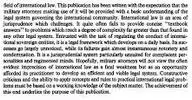Before entering fully into the definition of the term literary criticism, we are going to know the etymological origin of the two words that give it shape:
-Criticism comes from the Greek, exactly from "kritikos", which, in turn, derives from "krites", which is the result of the sum of two clearly delimited components: the verb "krinein", which means "to decide", and the suffix "-tes", used to indicate "agent".
-Literary, on the other hand, can be translated as "relating to literature" and derives from the Latin "litterarius", which was used to establish "proper to writing and reading."
The idea of criticism has several uses. On this occasion we will stick with its meaning as the judgment issued regarding a work or a show . Literary , for its part, is that linked to literature : the art that consists of verbal expression.
 Literary criticism , therefore, consists of the evaluative analysis of works of literature (novels, stories, poems, etc.). The concept is usually used with reference to the journalistic article or the media discourse that is carried out about one of these works, highlighting its positive aspects and its negative characteristics according to the opinion of the critic in question.
Literary criticism , therefore, consists of the evaluative analysis of works of literature (novels, stories, poems, etc.). The concept is usually used with reference to the journalistic article or the media discourse that is carried out about one of these works, highlighting its positive aspects and its negative characteristics according to the opinion of the critic in question.
Linguistics , rhetoric and aesthetics are some of the aspects that literary criticism considers when evaluating works. There are literary criticisms based on methodological rigor and others more focused on subjectivity.
It can be said that literary criticism analyzes and exposes: it carries out a study of the characteristics of the texts and then disseminates their successes and failures. The result implies the positive or negative evaluation of the works.
It is important to highlight that literary criticism must substantiate its claims. It is not about maintaining that a book is good "just because" , but rather the critic must develop the reasons that led him to estimate the literary work in that way.
When carrying out literary criticism, it is necessary to follow several fundamental steps or tips:
-Of course, it is essential to previously read the entire book that is going to be reviewed.
-In the event that there are prejudices towards the work or its author, they must be openly acknowledged.
-You should never be dishonest with the opinion you have after reading the work. Therefore, it must be exposed, but always with respect and without cruelty.
-It is necessary to establish if the story you tell is interesting, if it is original or not, if it manages to "hook" the audience.
-The characters must be analyzed: if they are attractive and convincing, what values they transmit or what sensations they generate in the reader .
-The crux of the story and, of course, the outcome are other fundamental aspects that must be analyzed in the same way in literary criticism.
Throughout history , important writers ventured into the field of literary criticism. Among them we can name the Mexican Alfonso Reyes , the Frenchman Paul Valéry , the Italian Benedetto Croce and the German Walter Benjamin .
